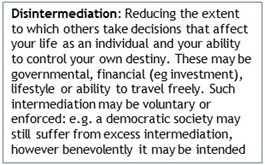“What's wrong with being a boring kind of guy?”
George Bush, 1988
Last week we were treated to new year speeches from both Sunak and Starmer, just over 3,000 words each, although much of the media reporting was drowned out by Harry’s new book. Rishi Sunak’s five promises got a fair bit of coverage, but journalists could be forgiven for their limited coverage of both speeches.
Keir Starmer described an ‘economy that hoards potential’ and ‘politics that hoards power’, and he called for de-centralising government: nice soundbites despite the references to his rival’s ‘sticking-plaster politics’. However, he provided no solution to the fact that public spending is grossly over-extended in relation to the size of the economy.
The same challenge was also dodged by Rishi Sunak, although he set out a number of other specific objectives such as innovation, stronger communities and extending education in maths. His comments about ‘always protecting the founding principle of a NHS free at the point of use’ also appeared to close down options for controlling that huge level of overspend.
So, in this commentary we look at some of the specific and less-reported features from their speeches, and we try to identify those aspects which could realistically form part of their 2024 manifestos.
Firstly, it helps to have sight of the speech texts, and in our webpage commentary we include both Sunak’s and Starmer’s. You have to search quite carefully for the key points amidst the waffle, but they are there.
Let's take that ‘maths education until 18’ point first. Sunak is not referring to everyone taking maths at ‘A’ level, and he undoubtedly has a focus on building technical life skills. There is specific reference to financial education aspects such as mortgages; but it's not going to tackle the central financial awareness problem — that there are not enough teachers who are themselves financially aware. In order to achieve this improvement in teacher training, there must be a Financial Awareness GCSE; and there's no indication in his speech that this will be part of the plan.
The second problem is that it's not just numeracy that needs attention; it must start with literacy, because far too many adults cannot read and write effectively. According to the National Literacy Trust over 16% of adults in England, or 7.1 million people, can be described as having ‘very poor literacy skills’. They also point out that many of these people are reluctant to admit to their handicap and to ask for help. It's for these reasons that The Share Foundation includes literacy as the first step in its Stepladder programme for young people in care.
You can't do it all with maths — you need both literacy and financial awareness in order to provide ‘world class education’, which is Sunak’s declared aim. When these are included, it would certainly be an appropriate aim for his 2024 manifesto.
 Let's look next at one of Starmer's objectives: de-centralisation. Listeners will know that the principle of disintermediation is a key element of our drive for a more egalitarian form of capitalism, but Starmer's not talking about that here. He wants more local government control, but he's failing to recognise that it's becoming increasingly difficult for both local government and other organisations to attract people to step forward and become involved. The BBC has just this last weekend drawn attention to a Somerset village which can't find anyone to stand for their parish council, for example.
Let's look next at one of Starmer's objectives: de-centralisation. Listeners will know that the principle of disintermediation is a key element of our drive for a more egalitarian form of capitalism, but Starmer's not talking about that here. He wants more local government control, but he's failing to recognise that it's becoming increasingly difficult for both local government and other organisations to attract people to step forward and become involved. The BBC has just this last weekend drawn attention to a Somerset village which can't find anyone to stand for their parish council, for example.
But when people respond eagerly to the offer ‘to take back control’, they're not talking about submitting themselves to just another form of intermediation: what they want is their own economic and political freedom as individuals, to live as they choose. Starmer has a long way to travel in order to achieve this as a key manifesto objective.
But let's finish with a couple of plus points from the speeches. From Sunak, it would be the value he places on family, encapsulated in his quote ‘whatever your family looks like it doesn't matter as long as the common bond is love’. On 15th August last year we reported on the awful statistic that more than half our young people are growing up in single-parent households, which is a recipe for massive insecurity in their adult lives. If Sunak plans to tackle this by rolling out his ‘Family Hubs’ he certainly deserves our support when it's included in his next manifesto.
And finally, there's Starmer’s declared objective to achieve ‘100% clean power by 2030’. We may not need his publicly-owned (yet again) company called ‘Great British Energy’ in order to achieve this — I understand that zero-carbon electricity generation accounted for 85% of our usage last week. But he's right to focus on the long-term commitment that we need to combat climate change, and this should be a feature of all manifestos in 2024.
So, whatever you think of the headline issues — halving inflation, restoring growth, reducing debt and NHS waiting lists, or stopping small boats from crossing the Channel — there are some hidden gems in these speeches; it's just that you need to dig hard to find them.
Gavin Oldham OBE
Share Radio

